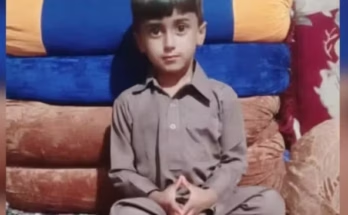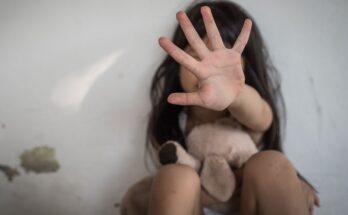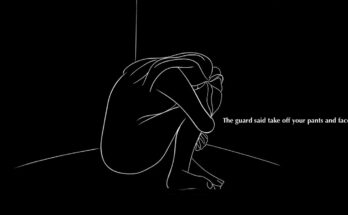Source: BBC News
By David Gritten

The elder sister of Nika Shakarami, a 16-year-old girl who was killed during the 2022 anti-government protests in Iran, has been arrested for allegedly not covering her hair, her family says.
Aida Shakarami, 22, was accused of “not adhering to compulsory hijab” by morality police in Tehran on Wednesday, her mother Nasrin wrote on Instagram.
“She remains in custody,” she added.
The police have not commented, but it comes after they launched a crackdown on breaches of the Islamic dress code.
Tehran’s police chief said on Saturday the new initiative would “confront social taboo-breaking over hijab and chastity and those who seek to expressly contravene hijab rules” – a reference to the many women and girls who have defiantly stopped covering their hair in public.
In another development on Thursday, video posted on social media appeared to show a young Iranian woman having a seizure after she was confronted by morality police in Tehran.
An eyewitness told BBC Persian that officers violently confiscated the woman’s mobile phone and purse because she was not wearing a headscarf.
Nika Shakarami became a symbol of the “Woman, Life, Freedom” protest movement that shook the Islamic Republic two years ago.
The protests erupted in response to the death in custody on 16 September 2022 of Mahsa Amini, a 22-year-old woman who had been detained by morality police in the capital for allegedly wearing her hijab “improperly”.
Authorities denied that Mahsa Amini was mistreated, but the UN’s Independent International Fact-Finding Mission on Iran said in a report last month that she “was subjected to physical violence that led to her death”.
On 20 September 2022, Nika was filmed at a protest in Tehran setting fire to her headscarf, while other protesters chanted “death to the dictator” – a reference to the Supreme Leader Ayatollah Ali Khamenei.
She disappeared that evening after telling a friend that she was being chased by police. Her family eventually found her body at a mortuary 10 days later.
They alleged that she died from blows to the head and rejected claims from officials that she had killed herself.

Authorities portrayed the protests as foreign-backed “riots” and tried to suppress them with force.
They have not released an official death toll, but the UN’s fact-finding mission said credible figures suggested that as many as 551 protesters were killed by security forces, most of them by gunfire. The government says 75 security personnel were killed.
More than 20,000 other protesters were reportedly detained, including many journalists and celebrities.
Nine young men have been executed in connection with the protests following what UN investigators found were summary proceedings that relied on confessions extracted under torture and ill-treatment. Dozens more have reportedly been sentenced to death or charged with capital offences.
The protests have now largely subsided, but there is still widespread discontent at the clerical establishment and, in particular, the hijab laws.
In September, Iran’s parliament passed a controversial “Hijab and Chastity” bill that would impose severe punishments on women and girls for violations of the dress code, including up to 10 years in prison and flogging. It must still be approved by the Guardian Council before it becomes law.
The UN’s fact-finding mission said the “violent repression of peaceful protests and pervasive institutional discrimination against women and girls” had led to serious human rights violations that amounted to crimes against humanity.




